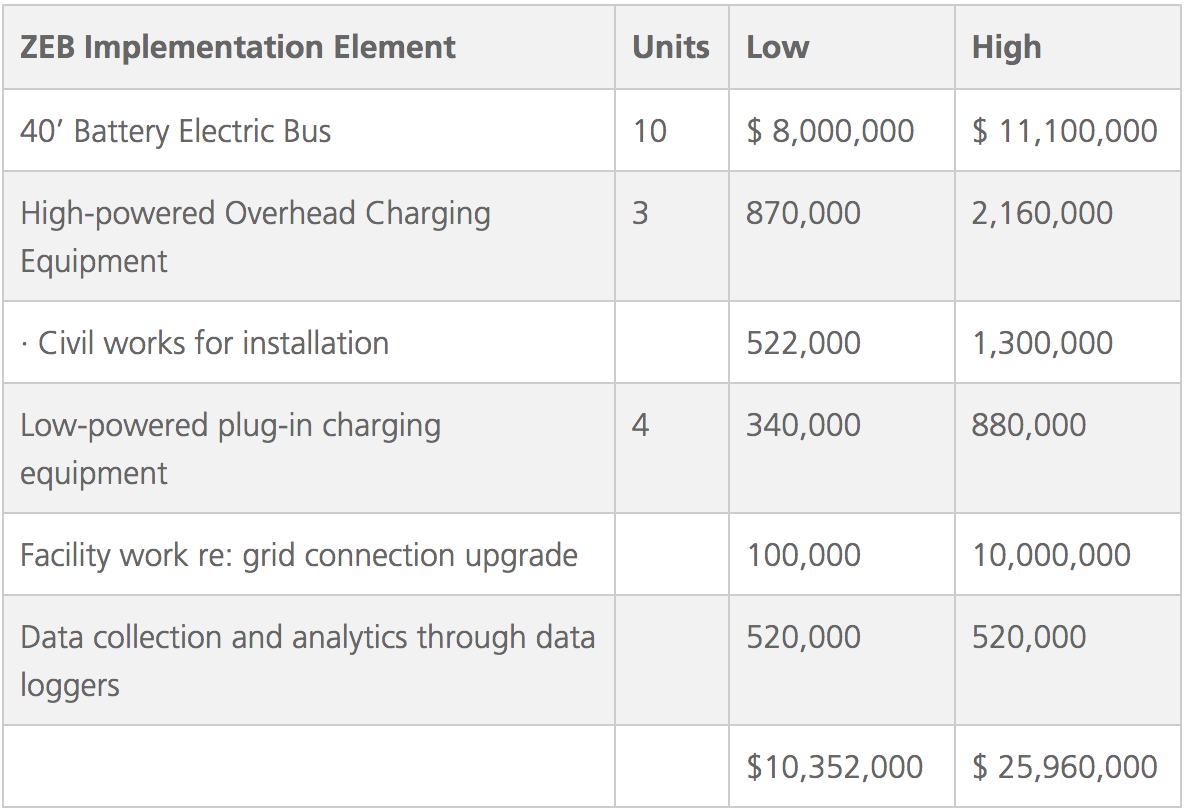A new report heading to board members of the London Transit Commission (LTC) on Wednesday outlines the potential first steps that may be needed to get electric buses on city streets.

While the report notes that total costs have not yet been finalized, it proposes bringing 10 40-foot electric buses onto London, Ont., streets at a cost that ranges between $10 million and just under $26 million.
First proposed by Mayor Ed Holder in his 2020 State of the City address, the LTC has spent the past year and a half exploring how zero-emission buses could be implemented into London’s public transit infrastructure.
Leading the implementation strategy is the Canadian Urban Transit Research and Innovation Consortium (CUTRIC), whose findings and expertise fuelled the latest report on hopes for an electrified fleet.
Along with the 10 electric buses, which accounts for about five per cent of the LTC’s conventional transit fleet, the report also proposes adding seven chargers.
The limited rollout aims to familiarize operations, maintenance and management teams with electric buses.
The report added that final costs won’t be tallied until a procurement process is undertaken and further consultations with London Hydro are still pending, but the total cost is expected to be no more than $25,960,000. The lowest expected cost is pegged at $10,352,000.

Get breaking National news
If approved, the report says costs would be included in next year’s budgeting, with a contract tentatively awarded by October of 2022.
Phil Squire, who chairs the LTC, expects the report will garner support from his fellow commissioners when they meet on Wednesday, but adds it’s important to view the document as only a starting point.
“All it’s saying is London city council is going to be presented with a business case saying, ‘here’s what we’re proposing to spend. Do you want to spend it?'” said Squire, who also serves as London’s Ward 6 Councillor.
“I expect that’s going to tell us whether that money’s going to come from taxpayers, whether it’s going to come from other levels of government, if some of it’s going to come from the LTC.”
With an upcoming federal election among a list of variables at play, Squire adds that he enjoys the cautious approach detailed in the report.
- Queen’s University students stranded in Doha after Iran attack shuts down airspace
- Iran begins search for new leader; U.S. military says 3 service members killed
- Attack on Iran triggers global flight disruptions, impacts Canadian travellers
- Khamenei’s death met with ‘jubilation’ among Iranian-Canadians: Liberal MP
While the report marks a new development in the LTC’s long-term goal of electrifying its fleet, Squire said the commission can’t lose sight of the drastic drop in ridership seen in city buses as a result of the COVID-19 pandemic.
“Right now, we’re really only running on about 50 per cent capacity and that absolutely has to go up,” Squire said, adding that the LTC is hoping to recapture the typical ridership boost brought on by post-secondary students returning to London in September.
“Everything we’re doing has been based on increasing our ridership, not just getting back to where we were before, but actually providing a better service that increases ridership.”














Comments
Want to discuss? Please read our Commenting Policy first.